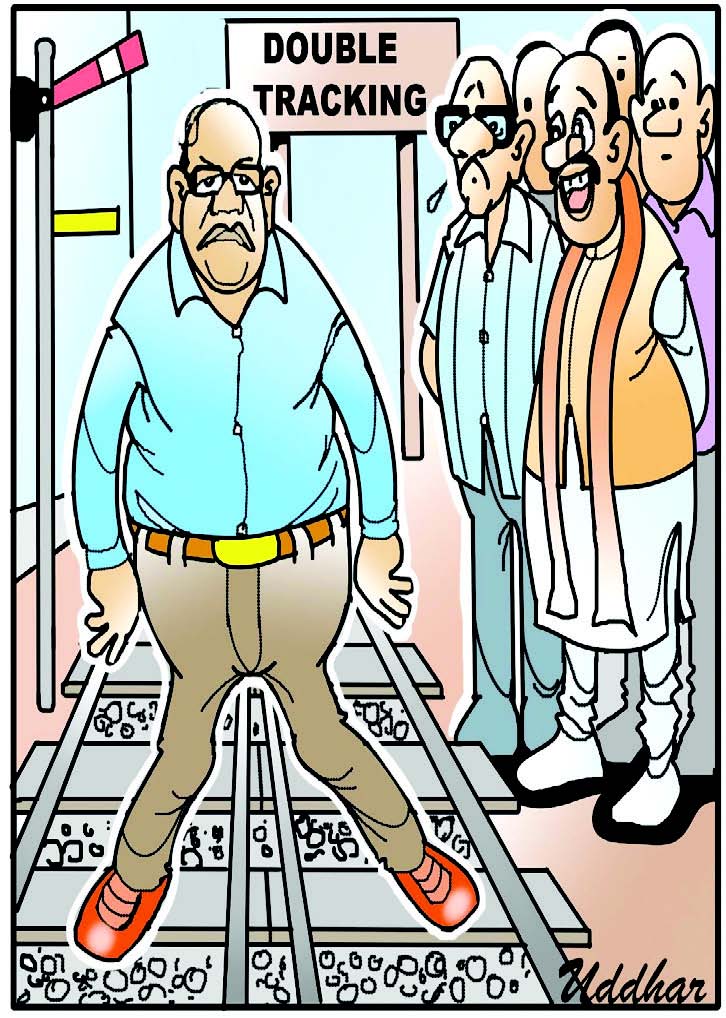An emphasis for continued symbiotic bilateral ties between India and Bangladesh is indicative after the conclusion of the official visit of Bangladesh Prime Minister Sheikh Hasina to New Delhi.
Sheikh Hasina should be sufficiently satisfied from the cordial, business-like, and cooperative atmospherics which emanated during her stay in the Indian capital. The precept has been marked by bonhomie; the percept determined through fruitful confabulations and exchanges. The litany comprises water resources, railways, judicial programmes, IT, scientific and technological cooperation, power transmission, space research, television, and combating extremism. The Indian side, led by PM Narendra Modi, is satisfied to discern the perpetuation of strong, acceptable bonhomie between India and Bangladesh.
In the turbulent international system, particularly of the South Asian geopolitical chessboard, India keeps countering rough, choppy terrain, figuratively speaking. The continuation of a friendly neighbour in the country’s east is a force for stability. Because Bangladesh has been essentially on a cooperative framework with India, managing turbulent social forces along the axis of Indo-Bangladesh border is much easier.
It also sets off a catalytic reaction. Insurgent elements in eastern and north-eastern India who attempt for safe sanctuary in Bangladesh and vice-versa are relatively more deterred by the collaboration in security among the two countries.
Considerable approbation is due to Sheikh Hasina for this. Ever since she rode to power through a sensational electoral mandate from the people of that country in 2008, she has justifiably taken an uncompromising position against any form of extremism. Foremost has been action against forces inimical to India. Subsequently, Sheikh Hasina has won the next two successive general elections in her country. This continuity has ensured that requisite actions and its attendant perseverance have progressed without hitches in the trajectory of relations between India and Bangladesh.
Possibly this is the first time in history that amiability between the two countries has held uninhibitedly for a considerable period of time. Bangladesh liberated itself from the jackboot of Pakistani tyranny, through crucial and substantial Indian support and assistance in December, 1971. Thereafter, a new era of perpetual cordial relations had been conceived between the leaders of India and Bangladesh. Consequent treaties signed between then Indian PM Indira Gandhi and Bangladesh PM of that time, Sheikh Mujibur Rahman ( the current Bangladeshi PM’s father), testified to such a possibility. On August 15, 1975, India was celebrating its independence day. In Bangladesh, a military action occurred in the PM’s official residence. There, Sheikh Mujib and all of his family members were liquidated. His two daughters, Sheikh Hasina and Sheikh Rehana saved their lives as they were visiting erstwhile West Germany.
Their fellow citizens witnessed an unwelcome disruption of values and socio-religious yardsticks within Bangladesh. The country remained under army dictatorship for sustained periods. To consolidate their hold on power, the army dictators often gave undue indulgence to religious extremists, to the apprehension of most people; minorities were repeatedly persecuted. A secular, progressive ethos got undermined in political rigidity and religious fanaticism.
Meanwhile, relations with India witnessed a blow hot, blow cold pattern. Illegal movement took place through the Indo-Bangladesh border, anti-India elements found safe haven in Bangladesh, and empty accusations against India often defined the order of things in Bangladesh. Friendly relations with India were spoken more in words than witnessed in deeds. In 1991, democracy returned to Bangladesh. But, Sheikh Hasina’s Awami League party failed to win the electoral contest. The victor was her political bête noire, Begum Khaleda Zia, who led the Bangladesh Nationalist Party. During Begum Zia’s stints in power, friendly relations with India were given lip service. The BNP administration preferred a position of sombre distance from India. In 1996, Sheikh Hasina came to power. A viable, bonhomie-attributed relation with India began. But, in 2001, Begum Zia again won the elections. Relations with India nose-dived. In December, 2008, parliamentary elections were held; Sheikh Hasina romped to power.
Thereafter, the record has attested more to stability than otherwise in India-Bangladesh relations. Despite the Awami League administration’s determined efforts to do so, despicable acts of extremism have occurred. The heinous attacks last year on the Hindu community across Bangladesh during Durga Puja festivities point to the existence of forces which seek any opportunity to disrupt social harmony and instigate human misery. .
A source of friction with India could be around sharing of waters of the Teesta river. That river flows downward through northern West Bengal to Bangladesh. Hence, the existence of a barrage. Nevertheless, there are several other rivers flowing from that region into Bangladesh. Proper dredging would enable huge quantities of water to flow to Bangladesh. It would facilitate required hydro resources to reach intended recipients in Bangladesh.
Before leaving for Dhaka, Sheikh Hasina averred that bilateral relations between India and Bangladesh were dubbed role models for neighbourhood diplomacy. It is a fervent hope that this paradigm would endure and overcome any hurdle.
(The author is a columnist with specialisations in
international affairs,
ecconomy & Indian politics)
